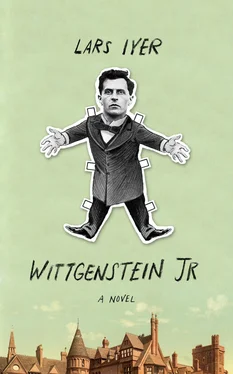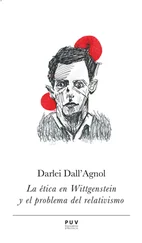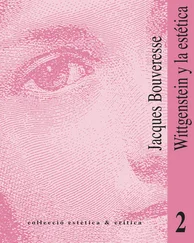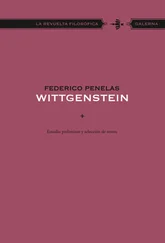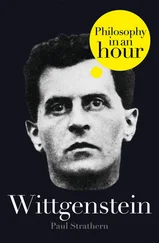DOYLE: There’s Benwell.
EDE: He’s hardly typical. Besides, he wants nothing to do with us.
We consider the enigma of Benwell. Why does he always scowl at us, though we, too, attend Wittgenstein’s class? Why does he ignore us?
Ede thinks it must be a northern thing. Things are grim up there.
DOYLE: Peters is northern!
EDE: Well, Benwell is from farther north. The real north.
Ede conjures up an image of Benwell in his old pit village, wandering past slag heaps and barred factory gates. Past rasping ex-miners on mobility scooters, past workless lads and grey-faced mothers, past the drug-addled and the muttering mad, up to the lonely moorland …
Ede says he’s always wanted to come from the north. It would legitimate his sense of despair.
MULBERRY: Despair about what? You’re as rich as Croesus!
EDE: About everything! If I were Benwell I’d want to blow all this up — the river, the Backs, all of Cambridge … Actually, if I were Benwell, I’d like to blow us up.
Luckily, there are drugs to dull the pain, Ede says, popping a mogadon and taking an extra one for luck.
EDE: This is how I got through Eton.
Wittgenstein, ahead of us, hands behind his back.
DOYLE: What do you suppose he’s thinking about?
EDE: Something very, very difficult.
DOYLE: Why does philosophy have to be so hard ?
EDE: You don’t know you’re doing philosophy unless it hurts . Feel the burn, Doyle-o!
Wittgenstein points out the faded names of firms on the sides of buildings. Names carved from building stone. Buildings once had a purpose , he says. People, too. There was a time when the butcher, the baker and the candlestick maker really were the butcher, the baker and the candlestick maker. When the Cambridge don really was a don, he says. And when the Cambridge student — any student— really was a student.
Trinity Street. The gatehouses, with their turrets … The filigree of the pinnacles, spires and domes … The stained-glass windows of King’s College Chapel …
EDE: They put the cobbles in to impress the tourists, you know. Ye olde Cambridge and all that. It’s like a stage set. The spectacle of the upper class in their natural setting.
WITTGENSTEIN (turning to face us): The beauty of Cambridge is meant to lull you, to make you let down your defences. The eye is only distracted by beauty. It is only deceived by beauty. Because the old alliance between beauty and goodness has long been broken, and the treaty between beauty and truth was torn up some time ago.
EDE (quietly): That was my point.
King’s Parade. Teenage tourists pose against the college walls. One pretends to hold the gatehouse of St John’s between his fingers, another does handstands. A clump of child-tourists are ushered away from the grass by a security guard.
Only the tourists really understand Cambridge, Wittgenstein says. Cambridge is only there to be photographed : that’s what they grasp. Cambridge is a collective fantasy …
Ede’s rooms.
EDE (doing his Wittgenstein impression): Cambridge dissolving ist. Like ein Alka-Seltzer.
ME (doing my Wittgenstein impression): Die Logik mit ein kicking k !
Laughter. How absurd Wittgenstein is! How pompous!
Still, it would be really something to make an impression on him, we agree. To say something startling in class, to make him look up, surprised. Perhaps you have something there , he’d say. You have put your finger on something , he’d say. Or: You have said something much more important than you realise . Or: Yes, that is certainly worth thinking about . Or: You have identified a genuine issue . Or: I must think about this further .
Imagine Wittgenstein making reference to you in class. As Ede said to me the other day … Or: Peters raised an interesting point with me …
Imagine walking through the cloisters with Wittgenstein, solving some logical problem together, voices echoing. Or standing on the library steps, exchanging ideas with hushed vehemence. Or walking silently in thought alongside him on the Backs, musing on some great Problem …
EDE: Wouldn’t it be nice to be brilliant? Philosophically brilliant! Logically brilliant! Wouldn’t you like to show witty brilliance, at least? A brilliance of repartee at the dinner table? Wouldn’t you like to be a savant , who people fear for and look after? Or a drunken genius, who comes into his own in kebab shops at 4 AM?
We speak of brilliance stumbling as night becomes dawn. Of brilliance passed out in a flowerbed. Of brilliance sick on the cobblestones … Of stray brilliance, wandering from every track …
We speak of burning yourself up from the effort of thinking. Of being spent from thinking, like an exhausted horse … Of your life being merely the husk of thought, of the effort to think …
And for Wittgenstein himself to sit at your bedside, as you expired from thought. For Wittgenstein himself to watch over you, mopping your brow, as you died from thought …
Wednesday evening. Ede tells me about his visit to Wittgenstein.
He knocked at the door, exactly on the hour, and almost instantly felt watched through the grille. Then the door opened, and there was Wittgenstein. He seemed frail , despite his height, Ede says. Vulnerable.
Ede felt nervous, he says. A little drunk, though he hadn’t drunk a thing. He thought he was going to say something stupid.
Wittgenstein asked his usual questions. Ede let out that he was heir to a duchy — he’s not sure why. Wittgenstein nodded. He, too, has known privilege, he said.
Ede needed the loo. He asked him where the toilet was, and felt vulgar.
So Ede stood pissing in Wittgenstein’s toilet. He felt he ought to have sat on the toilet to piss, he says. He noticed the dried lavender in a little pot in the bathroom. A tube of Aquafresh beside a toothbrush.
EDE: Genius uses Aquafresh.
Ede felt like a dolt through it all, he says. He couldn’t express himself. He couldn’t say anything witty. Anything memorable. But then, there wasn’t much space to speak. It’s Wittgenstein’s show, not yours, Ede says. Wittgenstein’s the star, even if he pretends he isn’t.
But his rooms really are different from other dons’, Ede says. There’s no wall of leather-bound books. No clutter of collectibles. No kitsch souvenirs as talking points. No bottles of college sherry, one dry and one sweet. No bottles of beer for undergraduates. No shabbiness —no sagging armchairs, no coffee-stained rugs. It’s very clean, very austere.
EDE: He told me about his hot baths. He boasted about the temperatures he can stand. And he said something about his hatred of carpets. You can’t keep them clean!
There was a flowering plant on Wittgenstein’s windowsill, in a little pot, Ede says. And he heard the sound of a piano being practised, a couple of floors down. And he caught a glimpse of Wittgenstein’s neatly made bed, through a half-open door. And he saw the views from Wittgenstein’s rooms, which look out over the red-tiled roofs, towards the river.
I tell Ede about my visit to Wittgenstein. The same stairs, the grille, the tea, the quiz. Wittgenstein set the tone, and I told him all sorts of silly things. My parents’ farm. My scholarship. My hatred of boarding school. My nostalgia for the hills of Yorkshire, as compared to the flatness of Cambridgeshire. My fruitless search for the so-called Gog Magog Hills in the Cambridgeshire countryside. My poetry …
Читать дальше
